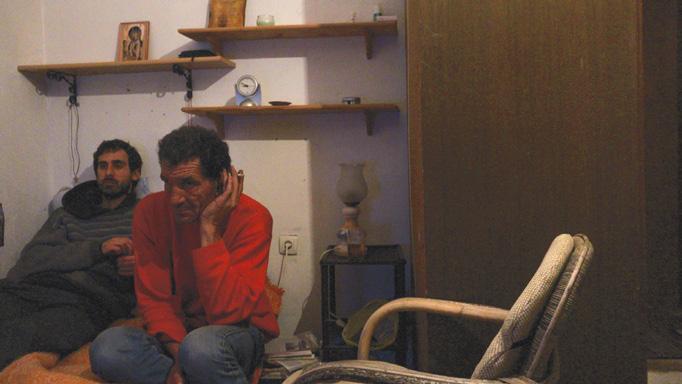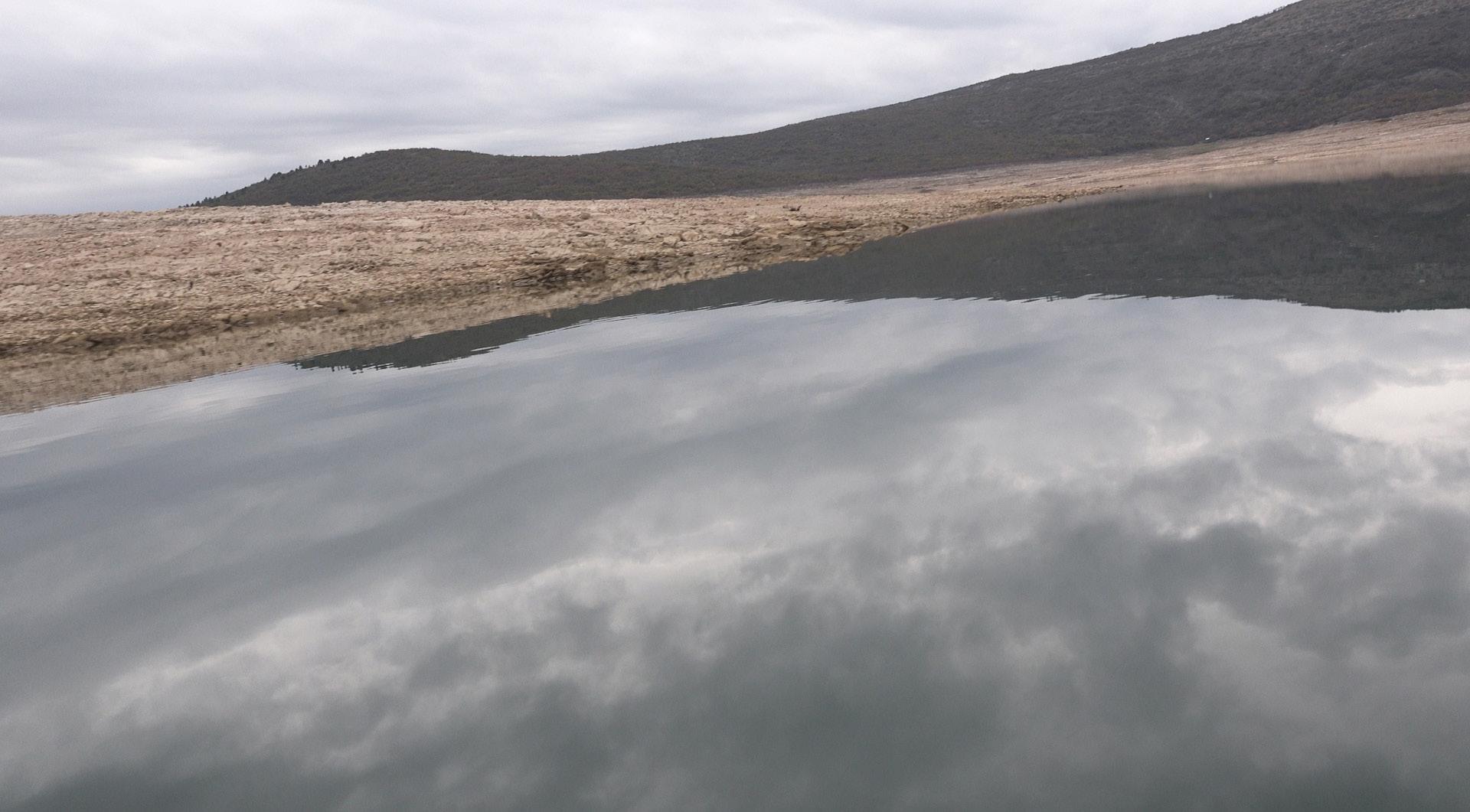
6 minute read
STEFAN PAVLOVIĆ
Eye see too, in You Friendship beyond Language
this is from me to you, from here, for all the way over there, and in-between.
you see too, with your eyes. and i see that you see, with my eyes. i see too.
Stefan Pavlović (1989), filmmaker currently based in Amsterdam. www.stefanpavlovic.com
He says he can recall his first memory. He says he thinks he can. He was about to turn four years old when they lived in Montreal. They: the mother, the father, the sister and him. He is me.
He is being bathed by his mother in a metal bucket, shower curtains closed, the whole world only right here, steaming.
Tufts of dark brown hair appear from under the shower curtain, floating towards the drain. His mother opens the curtain to the image of a wet floor, covered with more hair, and his little sister holding scissors, looking. Her face covered with bits of hair. She says her hair was too long, it covered her eyes and ears, she couldn’t see or hear.
The next thing he remembers is being alone in the bucket. Somehow the water feels sticky now, or maybe the feeling of alone is what’s sticky. He gets out of the lukewarm water to look for his sister.
Nude and wet he passes his parents in conversation. They don’t mind him. There are not many places his sister could be. He finds her at the dinner table with a plate in front of her.
(who put her there?)
She doesn’t see him. He looks at her eating. She takes a tomato from her plate and gets up. She walks over to the wall and sticks it behind a painting on the wall, showing a large horse running. It smears a little, the squashed red fruit. She walks back to the table. He feels he just witnessed something he shouldn’t have.
With a pacifier in his mouth,
(where did this come from?)
he walks over to the balcony. Still naked, he looks down and hesitates. He throws the pacifier over the railing: it hits a motorcycle parked down below. Four is a good age to do this. Almost four.
(why did no one witness any of this?)
In Montreal he spoke four languages - in the way a four year old ‘speaks’. the Yugoslav language - [his mother tongue], Dutch - [they would return next year], and English and French at day care. Unclear where one language ended and the other began.
When the pacifier fell down the balcony, hitting the motorcycle, all four languages went with it and snuck into that little piece of plastic that had just been in his mouth a moment ago. A stutter shaped the way he could and would communicate.
Words he had practiced, all of sudden wouldn’t come out anymore, came out cut up, bundled together, un-finished, stuck somewhere in oscillating infinity.




STUTTER
I know I will stutter before I do, there are certain letters I can try to avoid, some I cannot. My articulation gets hijacked, not necessarily to be taken somewhere else, but more kinda like movement and pause at the same time; a leak of sound.
I hear myself before I speak, with my body first, then with my ears, while I speak, and while I look at you; I hear my thoughts afterwards, reflecting on what I said, as I look at myself in you.
I read that the stutter is a glitch between these two types of self-hearing.

LANGUAGE
Each encounter relies on language, a certain type of language, which requires you to be in some sort of mode of understanding.
My practice came about from my trouble with speaking. Stuttering as a child and a teenager made me feel voiceless in a way, and removed me from the common modes of understanding and being understood - always distanced from.
I look for new language, for new ways of encountering, and have found two, for the moment: the poetic, written word, and the camera.
Both allow me to be a bit more in control of my own proximity to my surroundings and other people. Language being what is in between you and me; the camera, also, what is between you and me.
Throughout my time at the Master’s programme I have experimented with the relation between these two languages, text and image.
How they can overlap, provoke each other, clash or support each other.
How can text become part of the image, or become an image itself?
This resulted in subjective use of subtitling in my film. I use it as an afterthought, a present commentary or some in-between form.

THE INTIMATE CAMERA
For me, intimacy is connected with the present moment. Being able to give attention to each other, without feeling the passing of time, almost outside time.
So my question is: Is there such a thing as an intimate camera? Can we look together? Can the camera, standing between you and me, be a vehicle for friendship through which we practice togetherness and intimacy? I wonder whether we can go beyond just ‘capturing’, and push the camera into a space of creation, a move I call: from filming intimacy to filming intimately.
You might ask, why use the camera as a tool to practice intimacy with and through. Which is a valid question, since the camera can be a dominating, aggressive, egocentric device. Cinema in its totality, is a very authoritarian art form: we ‘capture’, we ‘shoot’, we ‘edit’, all actions of power, all from positions of a presupposed hierarchy.
These questions lay rooted in the film project I have been developing during this Master’s programme, they are inscribed in it, through the film I am asking these questions.
Is it possible to use the camera to build a relation that is not dictated by power? If not, at least does the camera allow for a different exchange of power?
I meet Zdravko at an artificial lake between Bosnia and Montenegro, while visiting my mother. On one side of the lake, in Montenegro, my grandmother lives. On the other side, in Bosnia, my parents have their roots. And in the middle, on the lake, Zdravko and I become friends.
Zdravko lost most of his hearing during the war, and an eye from when a battery exploded during work. The isolation he must feel moves me, and makes me think of my own experience of being unable to connect and develop a sense of belonging.
I have to disturb the scenic silence of the landscape by screaming at him, in a language I don’t speak well, in order for him to hear me. And he really wants to hear what I have to say.
Over time, and through the camera, we find our own language and way of communicating, beyond just verbal language.
He takes me onto the lake, we fish and look around. I bring him his first hearing aid, and he teaches me how to shoot a gun.
We look for the wild horses that live around the lake, but never find them. We find a lot of other things though.











